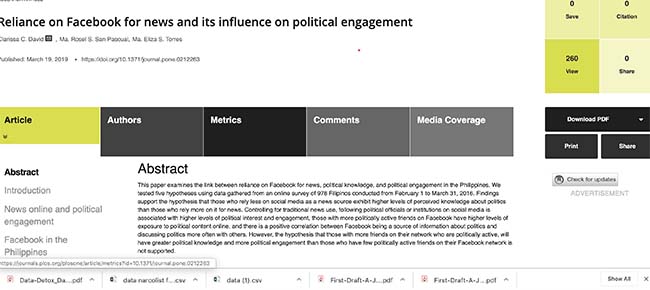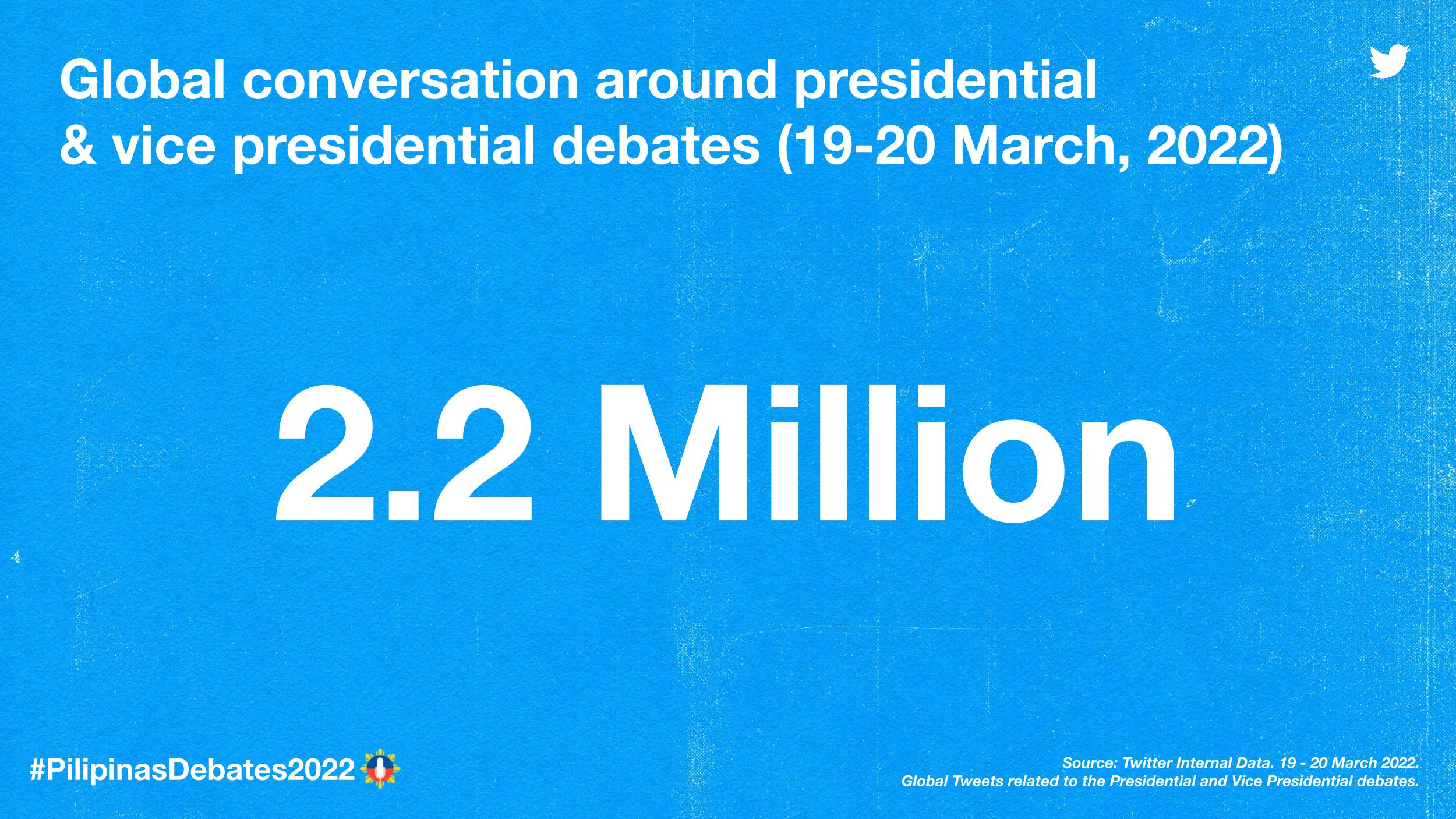Social media’s influence on political participation depends on level of interest
The first thing I do when I wake up is to go through my Twitter feed for current events or engage with my followers. Not everyone is on twitter though. Facebook is still the number one social media platform in the Philippines. Based on the “2019 WeAreSocial” survey, 97 percent of internet users use Facebook followed by Youtube (96 percent), Messenger (89 percent), Instagram (64 percent) and Twitter (54 percent). While Facebook does not generate original news content, it has grown into an important medium for news. Social media’s influence on political participation such as voting, advocacy or self-expression remains unclear but there are studies. Three women in the academe conducted research on young Filipinos below 45 years old. Clarissa C. David, Ma. Rosel S. San Pascual and Ma. Eliza S. Torres tested five hypotheses using data collected from an online survey of 978 Filipinos from Feb. 1 to March 31, 2016. The study examined the “link between reliance on Facebook for news, political knowledge and political engagement in the Philippines” by testing five hypotheses using data gathered from the online survey.
Reliance as used by the researchers means that if one does not receive news stories through the Facebook platform, no alternate source would be available. And the result is low knowledge of politics. The findings of the study interest me because I post a lot of news and political commentaries. My feed includes posts from friends with diverse political views but not as much as my twitter feed. Findings “support the hypothesis that those who rely less on social media as a news source exhibit higher levels of perceived knowledge about politics than those who rely more on it for news.” This association holds true even while controlling for news consumption in traditional news channels. Higher levels of interest and engagement among the respondents are associated with following the Facebook pages of political officials or institutions on social media. Respondents with more politically active friends report higher levels of exposure to political content online.
The data did not support two hypotheses: (1) Those who look at themselves as sources of political information during conversations are also more likely to discuss politics with others; and (2) those with more friends on their network who are politically active would have higher levels of knowledge and engagement than those who have fewer politically active friends on Facebook. This was intriguing. I expected exposure to politically active friends on your feed would make one more willing to engage in political action. The study suggests that Facebook may not be an “effective way to mobilize those whose current interest in politics is either null or weak.” The study has its limitations such as its reliance on self-reports on knowledge and reliance on Facebook for news.
Research on “Direct and Differential Effects of the Internet on Political and Civic Engagement” by Michael Xenos, et al. reveals that any effects of online news on political participation depend on traditional factors such as their level of interest in politics from the start. Another study (stumbling upon news on the internet, YonghwanKim, et al.) reinforces this. The exposure to information, even if one is not seeking it, can increase online political participation. Another research (Connecting blog, Twitter and Facebook use with gaps in knowledge and participation, Sung Woo Yoo) confirms the previous studies, that the increased engagement occurs among those already interested in news and politics.
How can we influence the youth to increase their interest in politics? Political information in one’s Facebook feeds can be toxic. Heated debates, nasty comments and trolling create a chilling effect. Some lurkers use closed spaces to discuss these issues. Friends message me to share their opinion about a hot topic on social media. It is unseen forces like harassment that stop a person from being able to comment or engage in a political discussion. Another study (How individual sensitivities to disagreement shape youth political expression on Facebook, Emily Vraga, et al.) shows that those who avoid conflict dislike political posts. Those who enjoy conflict post more political content. This study concluded that “young voters are open to political information on social media only when presented in a civil manner.”
Facebook may not be an effective way to engage in political participation for those who are not interested in politics. Using Messenger and other messaging apps is an alternative, a safer place to engage in political discussion. Twitter is another option because of its quality filter, muted words, and advanced filters that limit lower-quality content from your notifications.
You can download “Reliance on Facebook for news and its influence on political engagement”, published March 19, 2019
First published at Sunday Times & IT, March 31, 2019.




